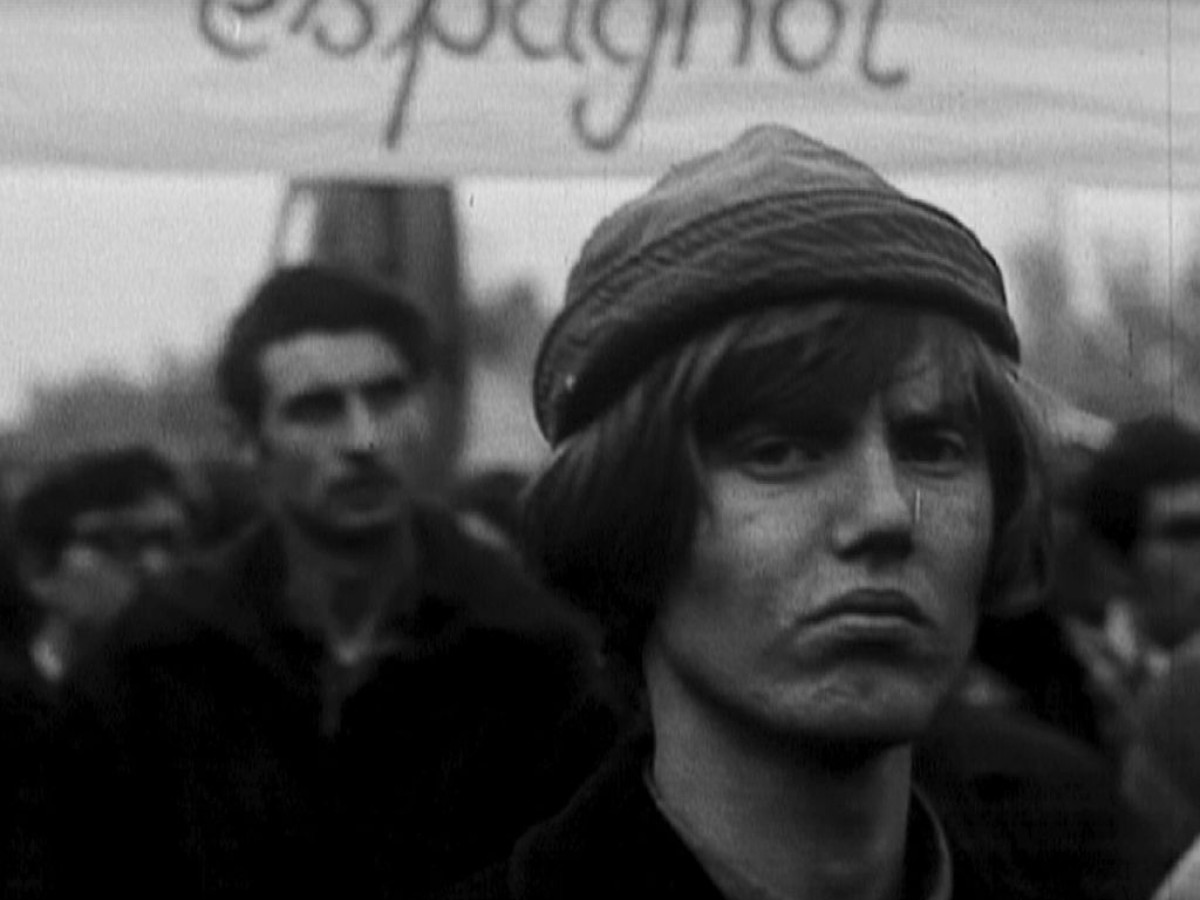In Person:
Jean-Gabriel Périot
May 29 and 30, 2020 (postponed)
French filmmaker Jean-Gabriel Périot (*1974) has drawn much attention in recent decades as one of the most extraordinary talents in found footage cinema. Une jeunesse allemande (A German Youth, 2015), his full-length, astonishing chronicle of the history of the RAF, composed solely of archival material, was already shown at the Film Museum. On October 22, we will present Périot's diverse and fascinating short film oeuvre.
An autodidact, Périot taught himself his cinematic craft during his internship at the Centre Pompidou Archives. The use of historical and contemporary footage is a major strand in his oeuvre in which he defiantly explores questions of representation, often in the form of rapid photomontages. In his opus, topical interventions on the image of workers (We Are Winning, Don't Forget) or political protest (in Les barbares, among others) come together with reflections on key historical events, as in his furious reflection on the topic of collaboration in the Second World War (Eût-elle été criminelle ...) or the film addressing the transformation of Hiroshima (Nijuman no borei).
In some of these works, Périot is close to the music video form, which he handles just as remarkably and with as much commitment (in Nous or Les temps passe) as he does political topics. In #67, he proves that he can also tackle subjects with comic brilliance: in this film, the (greenhouse) tomato becomes the epitome of evil, or at least of the sociocultural failure of European democracy. In addition, Périot also captivates as a reflected documentarist (e.g. Le jour a vaincu la nuit) and with (short) feature films such as Looking at the Dead, a faithful adaptation of Don DeLillo's short story Baader-Meinhof. To sum it up: an all-round talent. (C.H.)
In collaboration with the short film festival Vienna Shorts
French filmmaker Jean-Gabriel Périot (*1974) has drawn much attention in recent decades as one of the most extraordinary talents in found footage cinema. Une jeunesse allemande (A German Youth, 2015), his full-length, astonishing chronicle of the history of the RAF, composed solely of archival material, was already shown at the Film Museum. On October 22, we will present Périot's diverse and fascinating short film oeuvre.
An autodidact, Périot taught himself his cinematic craft during his internship at the Centre Pompidou Archives. The use of historical and contemporary footage is a major strand in his oeuvre in which he defiantly explores questions of representation, often in the form of rapid photomontages. In his opus, topical interventions on the image of workers (We Are Winning, Don't Forget) or political protest (in Les barbares, among others) come together with reflections on key historical events, as in his furious reflection on the topic of collaboration in the Second World War (Eût-elle été criminelle ...) or the film addressing the transformation of Hiroshima (Nijuman no borei).
In some of these works, Périot is close to the music video form, which he handles just as remarkably and with as much commitment (in Nous or Les temps passe) as he does political topics. In #67, he proves that he can also tackle subjects with comic brilliance: in this film, the (greenhouse) tomato becomes the epitome of evil, or at least of the sociocultural failure of European democracy. In addition, Périot also captivates as a reflected documentarist (e.g. Le jour a vaincu la nuit) and with (short) feature films such as Looking at the Dead, a faithful adaptation of Don DeLillo's short story Baader-Meinhof. To sum it up: an all-round talent. (C.H.)
In collaboration with the short film festival Vienna Shorts
Due to the developments around COVID 19, the screenings on May 29 and 30, 2020 could not take place as originally planned. The programs were rescheduled for October 2020.
Related materials
Link Vienna Shorts
